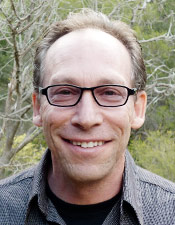The Sustainability Consortium’s tools used by product buyers
April 20, 2012
Walmart integrates TSC’s Knowledge Products to guide supply chain engagement
 TEMPE, Ariz,- April 20, 2012 – During its annual Global Sustainability Milestone Meeting on April 18th, Walmart announced that it is integrating the knowledge products produced by The Sustainability Consortium (TSC) into the retailer’s Sustainability Index and Live Better Scorecard. Walmart will use these tools to help its merchants evaluate suppliers and their products and collaborate to make the products on Walmart shelves more sustainable.
TEMPE, Ariz,- April 20, 2012 – During its annual Global Sustainability Milestone Meeting on April 18th, Walmart announced that it is integrating the knowledge products produced by The Sustainability Consortium (TSC) into the retailer’s Sustainability Index and Live Better Scorecard. Walmart will use these tools to help its merchants evaluate suppliers and their products and collaborate to make the products on Walmart shelves more sustainable.
Walmart representatives expressed that they are particularly excited about integrating TSC’s Category Sustainability Profiles (CSPs) and corresponding Key Performance Indicators into their Sustainability Index this year. Both Walmart and Sam’s Club will be using these tools as a basis for ranking suppliers in a particular category according to their sustainability progress and to inform buyers about actionable opportunities for improvement.



 A Thought Leader Series Piece
A Thought Leader Series Piece







 “You cannot run an economy, especially one poised for growth (like Arizona) without energy,” noted two Arizona State University energy experts in an op-ed that appeared in the Dec. 19 Arizona Republic.
“You cannot run an economy, especially one poised for growth (like Arizona) without energy,” noted two Arizona State University energy experts in an op-ed that appeared in the Dec. 19 Arizona Republic.




